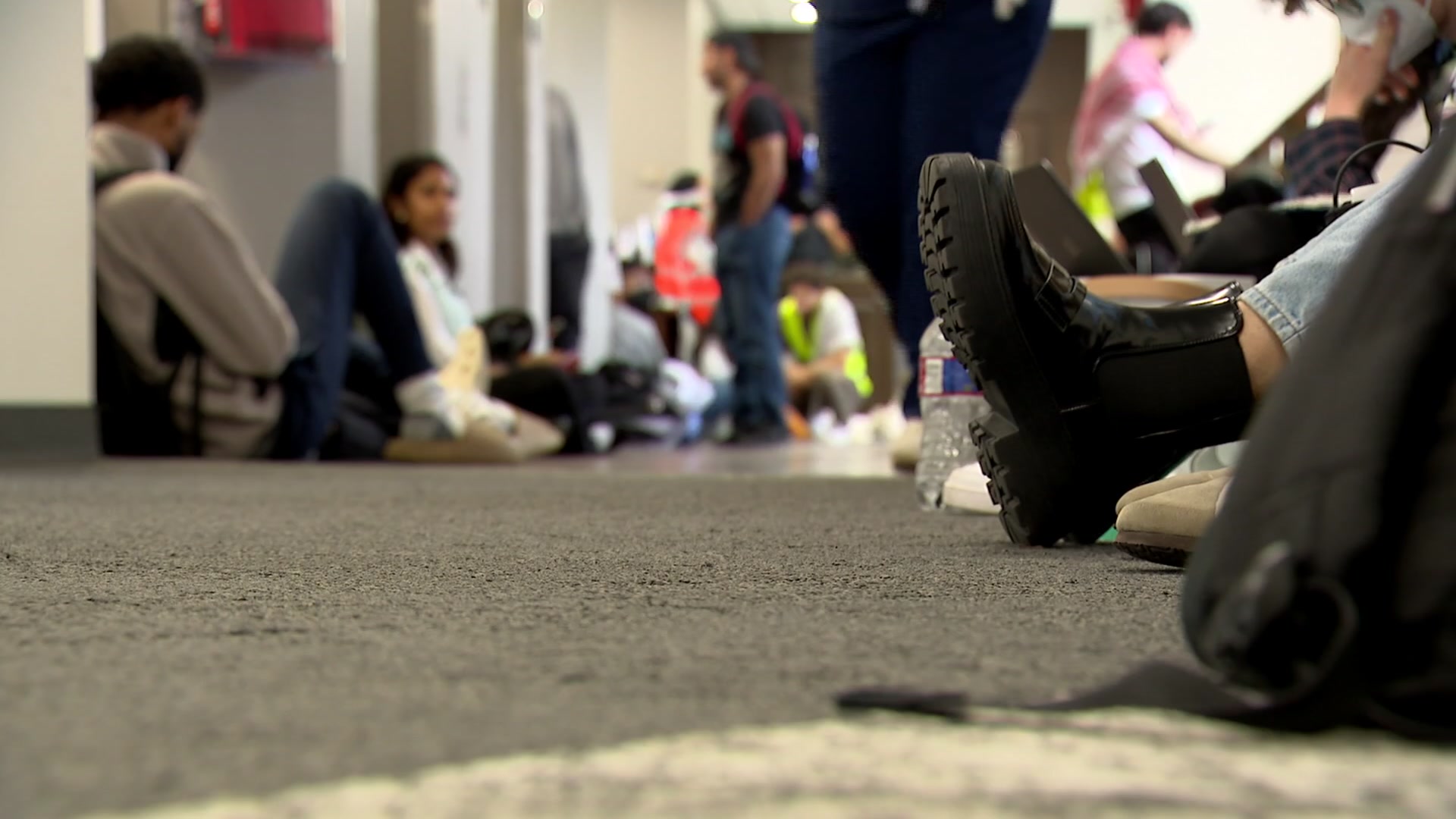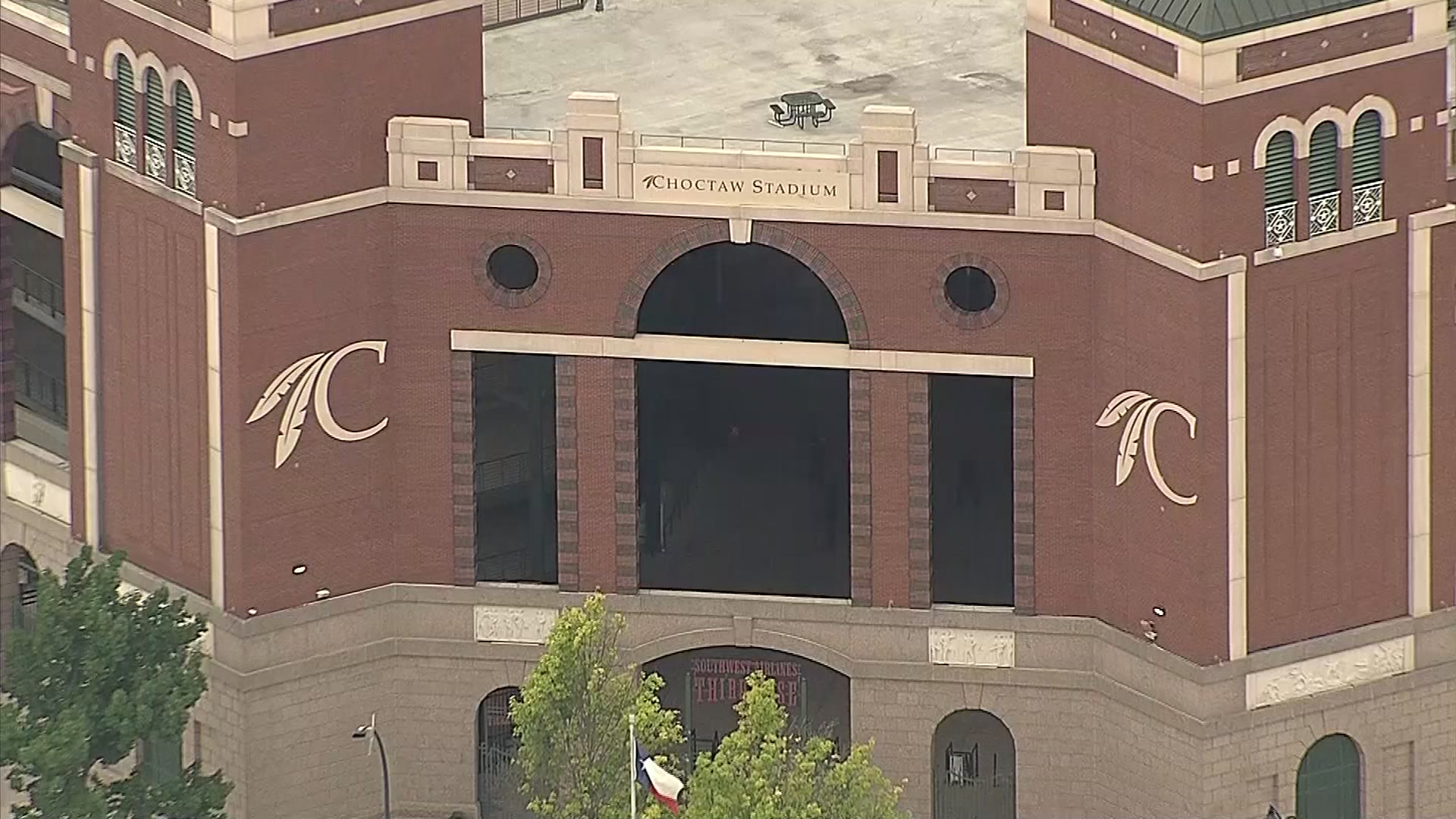The last several months have taken a toll on people in various ways. Former First Lady Michelle Obama is the latest to come out and say she’s dealing with mental health challenges.
Sharon Copeland was shocked; never expecting Michelle Obama and depression in the same sentence.
“I was like ‘oh not Michelle’ because she seems so strong,” said Copeland
Obama’s admission hit home. The pandemic has been rough for her mentally and emotionally.
“Do I feel anxiety? Yeah, about stepping out and going out to places,” said Copeland. “I’m not ready for that yet. Do I feel a depression about it? Yes, I do.”
In addition to the stress of quarantine, there are the recent videos of Ahmaud Arbery and George Floyd. There are protests, racial tension and inequities. It’s distressing for Copeland and countless others.
Local
The latest news from around North Texas.
“I cry at least twice a week just to get it off. Just to get all that emotional and everything off,” she said.
The National Alliance on Mental Illness North Texas says calls were very slow in March and the beginning of April, as people were processing and adjusting to the reality of the pandemic. By June, though, crisis calls increased by 300% and have stayed steady since then.
The numbers indicate Copeland isn’t alone. Mental health has taken a hit and has even been acknowledged by the CDC. Our ‘normal’ has been disrupted.
Psychiatrist and NAMI board member Joseph Guillory says much of the mental instability people are experiencing is a result of our ‘normal’ shifting and our level of isolation increasing.
“All of that infrastructure helps the mind feel like it has a sense of control over the situation and with control comes a healthy sense of security,” said Psychiatrist and NAMI board member.
Guillory says social interaction is crucial to brain health, mental wellbeing. And recent social issues leave people wanting answers. He says people are trying to figure out what to do with racial strife and inequities. Sitting in isolation with the current state of affairs can be difficult.
“Because there is a big question mark, restlessness comes with it,” said Guillory. “And restlessness and isolation are a recipe that doesn’t always build construction.”
NAMI North Texas Executive Director Athena Trentin says, based on calls over the past 3-4 months, the most common concern has been housing. She says people with mental health challenges are often unable to hold a steady job and maintain disability benefits.
Trentin says their most frequent calls are coming from family members who need help finding free/low-cost mental health care and housing for their adult loved ones.
For people who have the means and resources, there are activities that can alleviate mental stress. Copeland has found ways to stay afloat. She says she finds things to do with her husband.
“As a couple we cook together we bake together, and I think that’s fun,” she said.
Guillory says establishing a routine can help rebuild structure and a healthy sense of control.
“In the morning how about, I read a chapter of this book, and then after that let me go for a walk,” he said as an example.
Guillory says, if you’re struggling, know with certainty that you’re not the only one.
“You are not alone in no way, shape or form,” he said. “There is power in us admitting it to each other and trying to talk about it.”
For information on mental health resources here in North Texas, visit https://www.naminorthtexas.org/ where you can find support groups and educational programs.
Also visit https://www.cdc.gov/coronavirus/2019-ncov/daily-life-coping/managing-stress-anxiety.html
*Map locations are approximate, central locations for the city and are not meant to indicate where actual infected people live.



